Qualities of an Effective Project Manager
To be an effective project manager, one must possess qualities such as being a system thinker, maintaining personal integrity, being proactive, and having emotional intelligence. The role involves managing various stakeholders, including project teams, administrative support, top management, sponsors, contractors, government agencies, and customers. A project manager must balance stability with innovation, attention to detail with a big-picture view, and flexibility with firmness in decision-making.
Download Presentation

Please find below an Image/Link to download the presentation.
The content on the website is provided AS IS for your information and personal use only. It may not be sold, licensed, or shared on other websites without obtaining consent from the author. Download presentation by click this link. If you encounter any issues during the download, it is possible that the publisher has removed the file from their server.
E N D
Presentation Transcript
Effective Project Manager All of us have to manage various projects. Project Management course should help us to be better prepared for your own projects. However, you could become a professional project manager. What kind of qualities are necessary to be an effective project manager??? When everything goes according the plan, the job of the project manager is easy, but it is not the typical case. However, this is a rare situation and the project manager is very busy to keep the project running and on the track.
People Influencing Your Project Various people/groups influence the project - stakeholders: Project team your team that makes the project work completed. Administrative support accounting, purchasing, transportation, HR, IT. Functional managers matrix structure requires them to co- operate, assign project people etc. they are often concerned with their own department and position. Top management set rules, goals and priorities, approve budget, time and scope. Interested in success of the project, but responsible for the results of the whole organization.
People Influencing Your Project Various people/groups influence the project - stakeholders: Project sponsors champion the project and use their influence to get project approved, defend it and push it forward. Contractors various firms participating on our project that have to be coordinated. Government agencies legislative regulations, standards, safety measures etc. Customers set requirements and we have to meet their expectations.
People Influencing Your Project Example: Imagine a specific project and try your best to identify project team administrative support functional managers top management project sponsors contractors government agencies customers
Effective Project Manager Contradictory job of project manager: Must maintain stability and must be able to innovate and to find new ways to get things done. Must see the project as a whole and at the same time to be able to involved in details ( to get his hands dirty ). Maintain the team cohesiveness and atmosphere and to encourage individuals. Be flexible and adaptive when solving problems as well as firm and strict when holding line, time and budget.
Effective Project Manager Important qualities of project manager: System thinker able to see the whole picture and to manage numerous interactions amongst project parts. Personal integrity be able to manage yourself before managing others. Proactive solve problems before it is needed or before it escalates and it is too late. Emotional intelligence (EQ) be sensitive and respond constructively to others when problems arise.
Effective Project Manager Important qualities of project manager: General business perspective to integrate different functional disciplines to contribute to a successful business Effective time management - to be able to budget his/her time wisely and quickly adjust priorities Skillful politician - to deal effectively with a wide range of people and win their support Optimist - to display a can-do attitude and keep people s attention positive (good sense of humor is a great strength)
Effective Project Manager One of the most important qualities of any project manager is to be able to build relationships. It is important to build relationships from the very beginning (before you need them). Identify key players and what you can do to help them before you need their assistance. Be proactive! Build mutual trust and respect. Foster it through frequent face-to-face contact. Be genuine, fair, really caring no manipulation!
Effective Project Manager Influential project manager? Project manager has to built a good and co-operative environment and to have many allies. Some authors describe influence in terms of exchange currencies (something for something), where virtual accounts are created in order to be used in future (law of reciprocity) There are many different currencies available and different people value different currencies too
Effective Project Manager Task Related Currencies This form of influence comes directly from the project manager s ability to contribute to others accomplishing their work. Typical forms: the ability to respond to subordinates requests for additional manpower, money, or time; sharing resources with another project manager who is in need; providing direct assistance or technical knowledge; helping with problems or undertaking unwanted tasks; providing quicker response time; aiding implementation; sharing valuable information etc.
Effective Project Manager Position-Related Currencies This form of influence comes from the manager s ability to enhance others positions within their organization. Typical forms: giving a task or assignment that can result in promotion; recognition by acknowledgement of effort, accomplishments, or abilities; providing a chance to be known by higher-ups or significant people in the organization; providing opportunities for networking, linking with others etc.
Effective Project Manager Inspiration-Related Currencies It is based on people s strong desire to make a difference and add meaning to their lives. Creating an exciting, bold vision for a project can elicit extraordinary commitment. Typical forms: being involved in a task that has larger significance for the organization, customer, or society; having a chance to do important things; provide opportunities to feel good about what they are doing and that they are making a difference; changing the world and doing what is right by a higher standard than profit, efficiency etc.
Effective Project Manager Relationship-Related Currencies These currencies have more to do with strengthening the relationship with someone than directly accomplishing the project tasks. The essence of this form of influence is forming a relationship that goes beyond normal professional boundaries and changes into friendship. Typical forms: listening to others concerns and issues; picking people up when they are feeling down, boosting their confidence, and providing encouragement; giving personal support and emotional backing; providing closeness and friendship etc.
Effective Project Manager Personal-Related Currencies Enhancement a colleague s sense of worth, because self- esteem is a primary psychological need. If we can help others to feel a sense of importance and personal worth it will naturally generate goodwill. Typical forms: sharing tasks that increase skills and abilities; involvement; letting others have ownership and influence; expressing gratitude and appreciation, etc.
People Influencing Your Project Example: Imagine a specific project and try your best to identify Task Related Currencies Position-Related Currencies Inspiration-Related Currencies Relationship-Related Currencies Personal-Related Currencies
Managing geeks Someone who is skilled with computers, and who seems to be more interested in them than in people Technology experts could be uneasy to work with Fascinated by technology, but they usually have poor social skills Often with huge ego and considered arrogant by the others They don't understand the real business at all
How to manage geeks? How to manage someone like Sheldon Cooper who is irreplaceable for your business?
Common features of geeks? They behavior is often seen as arrogant They do not respect authorities They wish to play with the latest technology They love to be seen as experts They are competitive and curious The are perfectionist They are never wrong They do not like changes They do not like to be disturbed
Typology of geeks Arrogant Einsteins Their smartness give them a special place in the world Arrogant prima donnas that love to complain as well as to challenge management decisions Take it as a matter of fact, tolerate some amount of gripe Know-it-all Einsteins They like to test authority but in a quieter manner Work on their own priorities and have a group of followers Do not confront them directly; sanctions are useless Keep an eye (and track them) indirectly to keep them focused and busy without any strict monitoring/micromanaging
Typology of geeks Impatient Einsteins Extreme impatience they understand everything quickly (no need to tell it twice) and they get bored quickly as well Let them work on their task as they are progressing Assign them another task when they become bored Boredom causes impatience, unhappiness and withdrawal Eccentric Einsteins They love to be eccentric at work (dressing, eating, coming to work, ) or in their outside hobbies or interests Allow them (or even encourage) their eccentricity as long as it does not interfere with the work or professional behavior
Typology of geeks Disorganized Einsteins Surrounded by a total disorder of wires, components, etc. Nevertheless, they can usually locate things in their chaos Have someone who keeps an eye on the most valuable assets Withdrawn Einsteins They adopt a withdrawing style and tend to underachievement They do not like to be visible nor involved It is necessary to identify them, to help them to overcome their resistance to change and to engage them
How to manage geeks? Either geeks are part of the solution, or they are part of the problem! Engage them! It is a problem, but it is the same problem as how to deal with stars in your football, basketball team, ;-) Geeks are more interested in winning, making impact, making an accomplishment, than in money. It does not mean that they do not care about money!
How to manage geeks? Find a way to give them promotions without turning them into managers. Due to their personal features they would likely turn out to be terrible managers. You need to offer them some form of recognition! Good idea is to create parallel technical ladder with new titles distinguished engineer (elected).
How to manage geeks? On the other hand, geeks know very well how to deal with other geeks look for natural leaders among them. They are able to assess the abilities of other geeks. And they are often harsh and ruthless when doing this. They know how to deal with the wild ducks in their group on their own and with their own measures.
How to manage geeks? Be careful to tell them what to do and not how to do it! You can never get a masterpiece from a painter if you describe them a particular painting in a great detail, if you tell them the right composition, the colours to be used, which angle is the best, You just have to give them a problem, set the objectives and provide them all the resources needed Give them enough freedom (and let them play ;-))
How to manage geeks? Too many geeks spoil the soup keep the teams small! You can t live with them and you can t live without them! It is much better to manage them than just to observe them ;-)
How to manage geeks? Summary Take a special care of your geeks. Try your best to recognize their motives and behavior and then do your best to manage them accordingly. They might be unbearable but it is hard to do ICT (and many more!) projects without them.
International Projects Some projects have to be carried on in an international environment. The project manager has to work overseas or it is necessary to manage colleagues from different countries or cultures. Problems: absence from home, friends, and family; missed career opportunities; foreign language, culture, and laws; adverse conditions. Positives: increased income, increased responsibilities, career opportunities, foreign travel, new friends.
International Projects Environmental factors: Legal/Political: local legislation, labor laws, corruption, governmental interference, political stability, ecology standards, political risks. Security: international terrorism, local crime, capacity of a country s military and police, tribal influence etc. Geography: weather (wind, rain, heat, frost, humidity, monsoon, tornado, hurricane), earthquake, jungle, desert, daylight, rough waves etc.
Environmental factors Economic: gross domestic product (GDP), inflation, rate of unemployment, labor supply and education of workforce, population growth, currency fluctuations etc. Infrastructure: services needed for the project - communication, transportation, power, technology, education system, health care, schooling for children etc. Culture: customs, values, philosophies, social standards, religious factors, language of communication, etc.
Cross-cultural considerations Working in France: Social status is important and it is shown by the level of education, knowledge of arts and literature etc. The French admire people who disagree with them. They often determine a person s trustworthiness based on their first-hand, personal evaluation of the individual s character. French organizations tend to be highly centralized with rigid structures slow decision making. They value leisure time, personal appearance and taste.
Cross-cultural considerations Working in United States: Americans admire the self-made person who rises from poverty and adversity to become rich and successful. Americans are attracted to people who agree with them. They evaluate a person s trustworthiness on the basis of past achievements and other people s evaluations. They value flexibility and improvisation if they believe that change will lead to accomplishment. They are very time-conscious and efficient be punctual. They tend to be friendly and open when meeting someone but it does not mean a real and strong friendship.
Cross-cultural considerations Working in Mexico: Mexicans value friendship and prefer to do business with friends or within their family. Compadre system gives preference to relatives and friends when hiring and doing business in general. Because family is all-important to Mexicans, it is necessary to exchange information about each other s family. People s trustworthiness is often measured by the loyalty and attention you devote to your family. Mexicans have a different concept of time (ma ana). Mexicans can be very passionate and emotional when arguing. They enjoy a lively debate.
Cross-cultural considerations Working in Mexico: While Mexicans can be emotional, they tend to shy away from any sort of direct confrontation or criticism. A long silence often indicates displeasure or disagreement. Speech in Mexico is often indirect. People rarely say no directly but are more likely to respond by saying maybe (quizas), or by saying I will think about it or changing the subject. Yes (si) is more likely to mean I understand you than yes. Titles are very important in Mexico and are always used when a person is introducing someone or being introduced.
Cross-cultural considerations Working in China: Chinese society is influenced by the teachings of Confucius. While America relies on legal institutions to regulate behavior, in Confucian societies the primary deterrent against improper or illegal behavior is shame or loss of face. Whom you know is more important than what you know. Very important is guanxi - personal connections with appropriate authorities or individuals. Trust is transmitted via guanxi difficult for foreigners. Gift-giving, entertainment and banquets are essential for good business. Reciprocity is important in negotiations.
Cross-cultural considerations Working in Saudi Arabia: Saudis attach a great deal of importance to status and rank. When meeting with them, defer to the senior person. Connections are extremely important in doing business. Mutual respect is expected at all times. Never to criticize or denounce anyone publicly. There is a completely different view of time in Saudi Arabia. A favorite expression is Tomorrow if God wills . Saudis often act on the basis of emotion; not necessary on logic. It is important to share the facts but also to make emotional appeals during negotiations.
Cross-cultural considerations Working in Saudi Arabia: Saudis also make use of ritualized forms of greetings. There might be various interruptions during the meetings. Patience is very important. Initial meetings are typically used to get to know the other party. Business related discussions may not occur until the third or fourth meeting. Business meetings typically conclude with an offer of coffee or tea. This is a sign that the meeting is over and that future meetings, if there are to be any, should now be arranged. Important decisions cannot be made by e-mail or phone.
Cross-cultural considerations Working in Czechia??? What are the major cross-cultural differences you have observed during your studies here?
Cross-cultural considerations Working in Czechia??? Since the fall of communism, the work culture has gradually shifted in line with western style culture. Job and academic titles are considered as a source of prestige (but do not always match the level of responsibility). Meetings are expected to start on time. Turning up unexpectedly early for a meeting is considered a faux-pas. A bottle of wine and/or flowers are deemed to be the ideal small gifts when visiting homes and are always appreciated. Visitors are expected to remove their shoes when entering a home and often the host will provide guest slippers .
Cross-cultural considerations Working in Czechia??? It is quite common that you will get a story upon asking question How are you? Czechs tend to be pessimists and they like to complain about politics, personal health, their job, weather, football team results etc. People drink a lot of beer but there is a zero tolerance policy towards drink-driving. Czechs are less politically correct and are often said to have black humor .
Cross-cultural considerations Your final homework! What are the cross-cultural considerations to be taken into account by a foreigner working in your country? Try your best to identify 3-5 typical issues or differences.
Project Management Practice Summary: What is a project and project management? How to select the right project? Project planning and using CPM Levelling resources and crashing durations Project control International projects Effective project manager Cross cultural considerations
Project Management Practice Summary: While the most of us use the same CPM, the way the project is performed could be significantly different! Project management is a challenge, but it is very nice to make your project happened. Good luck!
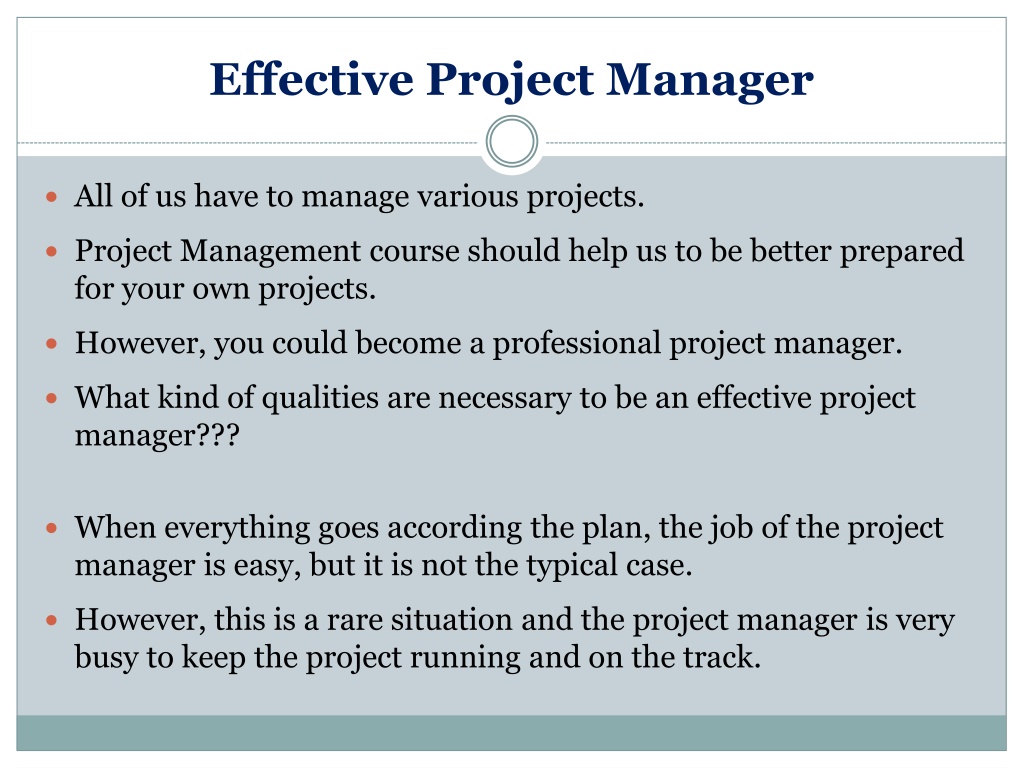














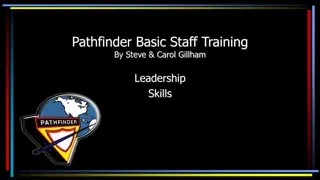
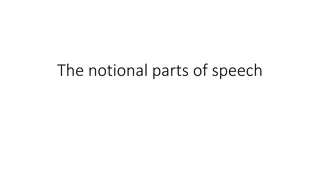
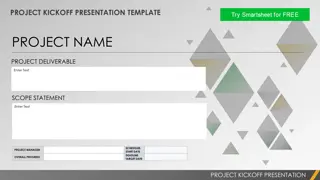
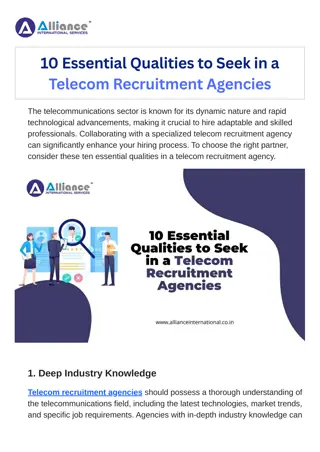
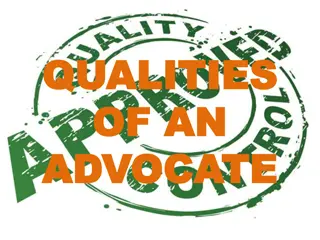
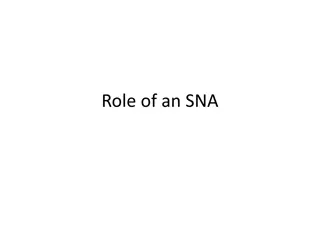
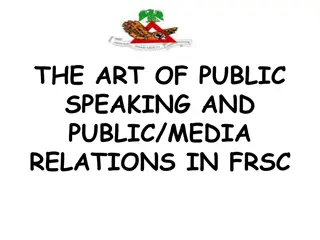


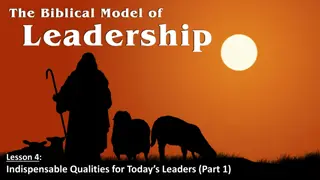

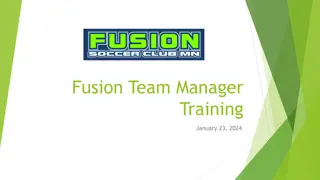
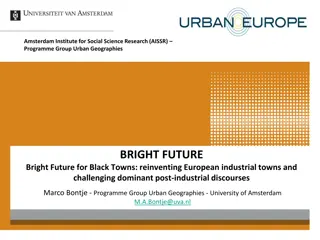
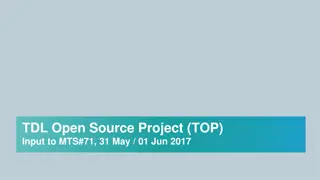
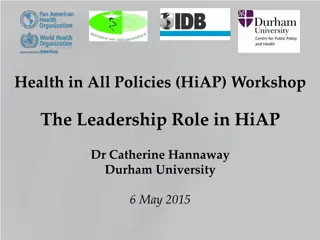
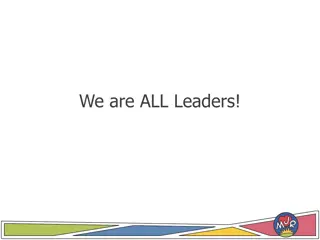
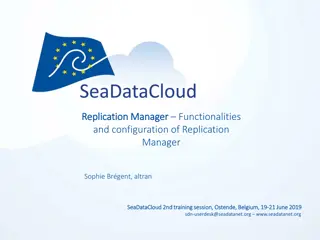

![Project Initiation Document for [Insert.Project.name] [Insert.Project.number]](/thumb/226757/project-initiation-document-for-insert-project-name-insert-project-number.jpg)
